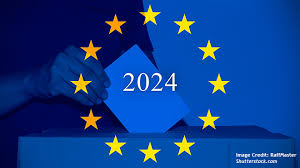European Elections Shake Up Political Landscape
Populist parties made significant gains in recent EU elections, prompting discussions about the future of European integration.
Daniel Novak
June 11, 2025 • 2 min read

Overview
Analysts believe these election outcomes represent more than just a political reshuffling—they reflect a broader transformation in the European electorate. As traditional power structures face increasing pressure, the EU may be entering a period of recalibration, where citizen engagement and grassroots activism play a more central role. The challenge now lies in turning this electoral momentum into concrete policy that addresses the real and urgent concerns of Europeans across all member states.
The recent European elections have ushered in a wave of political change across the continent, reflecting growing dissatisfaction with traditional parties and the emergence of new movements. Centrist coalitions that have long dominated the European Parliament lost significant ground to both far-right and progressive parties, signaling a shift in voter priorities. Issues such as climate change, economic inequality, immigration, and digital privacy were central to the campaign debates and heavily influenced voter turnout, which reached its highest level in two decades.
Analysts believe these election outcomes represent more than just a political reshuffling—they reflect a broader transformation in the European electorate. As traditional power structures face increasing pressure, the EU may be entering a period of recalibration, where citizen engagement and grassroots activism play a more central role. The challenge now lies in turning this electoral momentum into concrete policy that addresses the real and urgent concerns of Europeans across all member states.
The recent European elections have ushered in a wave of political change across the continent, reflecting growing dissatisfaction with traditional parties and the emergence of new movements. Centrist coalitions that have long dominated the European Parliament lost significant ground to both far-right and progressive parties, signaling a shift in voter priorities. Issues such as climate change, economic inequality, immigration, and digital privacy were central to the campaign debates and heavily influenced voter turnout, which reached its highest level in two decades.
In countries like France, Germany, and Italy, far-right populist parties made notable gains, capitalizing on anti-immigration rhetoric and frustrations over EU bureaucracy. Meanwhile, green and pro-European progressive parties also secured strong support, especially among younger voters eager for decisive climate action and greater social equity. The fractured results are expected to complicate coalition-building efforts within the Parliament, forcing cross-party negotiations and a reevaluation of the EU's legislative agenda moving forward.
Comments
0 TotalNo comments yet. Start the conversation.
Explore More Deep Dives

Deep Dives
Exploring the Impact of Generative AI on Business
DEEP DIVE Exploring the Impact of Generative AI on Business As generative AI technologies evolve, their transformative potential f...
Read deep dive
Deep Dives
How Artificial Intelligence Will Affect the Jobs of the Future
Artificial Intelligence is rapidly transforming the workforce, reshaping job roles, creating new opportunities,
Read deep dive
Deep Dives
Street Art and Muralism as Tools for Social Transformation
Discover how street art and muralism serve as powerful tools for social transformation by fostering community engagement, challeng...
Read deep dive